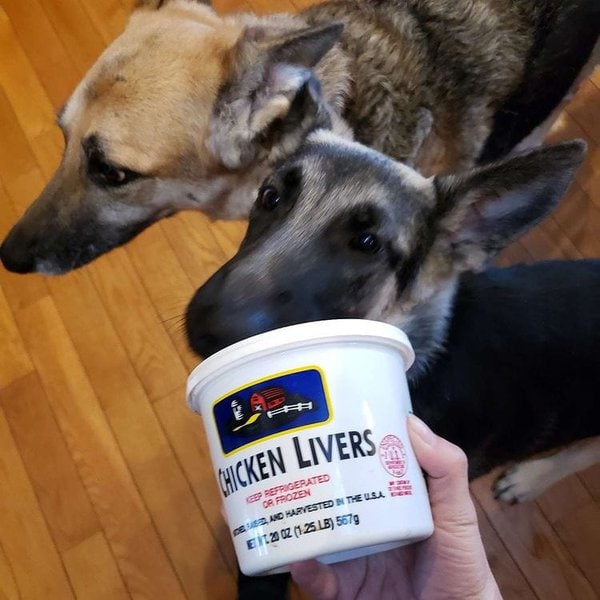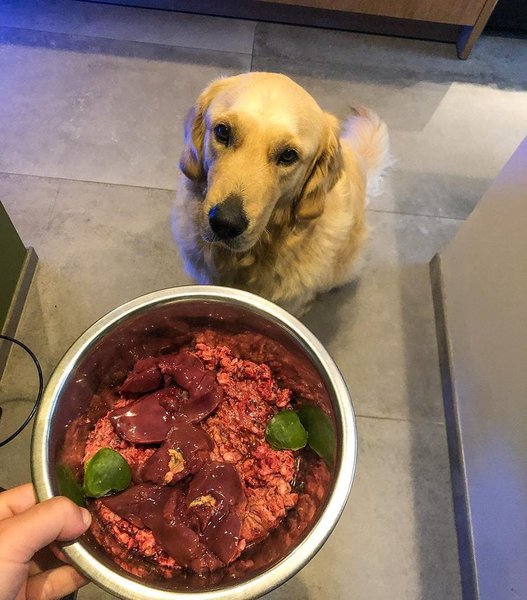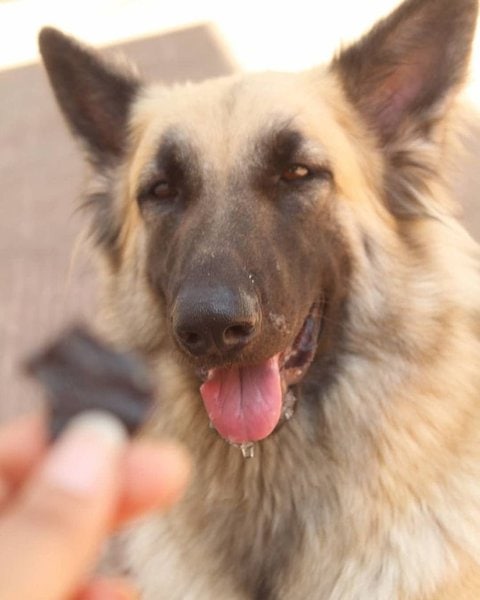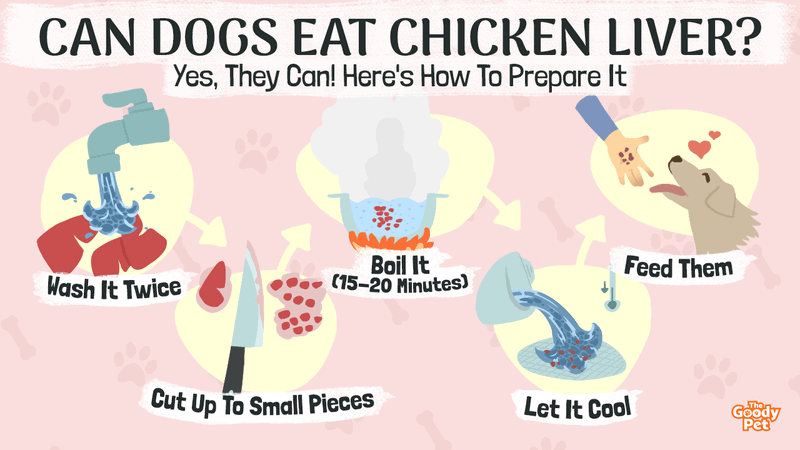When it comes to expanding your dog’s palate in terms of protein sources, one of the most underrated options is that of chicken liver. No matter what you personally feel about the flavor or texture of the liver, there is no denying their popularity among our furry best friends.
Dogs can eat chicken liver and in fact, have a lot of health benefits to look forward to with these nutritionally packed treats. The most important thing you need to understand is how to prepare and serve the chicken liver.
To give you a better perspective of what to expect from the chicken liver in your dog’s diet, here is everything you need to know about this nutritious snack.
Can Dogs Eat Chicken Liver?

Dogs can eat chicken livers safely as long as they are properly prepared and served in moderation. The chicken liver actually has many health benefits to offer to your pooch. Here is more on its nutritional profile and the associated perks.
Rich In Vitamin A
The liver is one of the best sources of vitamin A and chicken liver is a particularly good option for your dog. This powerful vitamin is involved in many important processes in your dog’s body.
The health benefits of vitamin A in your dog include improved night vision, coat health, increased immunity, and improved bone strength.
Rich In Selenium
Selenium is a rare mineral that has numerous health perks for your dog to benefit from. These include antioxidant effects and regulation of DNA synthesis. This combined effect helps keep your dog healthy and lowers the risk of diseases of old age like cancer.
Rich In Vitamin B Variants
Chicken liver is a great source of B12 which is important both in the process of production of red blood cells and nerve conduction.
Furthermore, the chicken liver has folate which is a crucial compound used in pretty much every system in the dog’s body for all sorts of processes. These processes include healing, immunity, and even energy production.
Rich In Vitamin C
If your dog has low immunity or needs help recovering from a particularly nasty infection, the high levels of Vitamin C in the chicken liver will be very useful. This vitamin also helps promote coat health and has a synergistic effect with vitamin A for a pooch that looks as good as they feel.
Low In Carbohydrates And Calories
Chicken liver is a fantastic source of protein for dogs at risk of obesity or already suffering from the same. This is because it has far fewer calories than other sources of protein like red meat.
Chicken liver is therefore ideal to occasionally switch up an overweight dog’s diet on their road to a healthy weight range.
How To Prepare Chicken Liver For Your Dog?
Chicken liver should only be served to your dog cooked and well-done for that matter. It is also best to serve the liver unseasoned as adding spices could cause digestive tract irritation.
Here is a step-by-step breakdown of how best to prepare chicken livers for your doggy in a way that is safe but still tasty for them.
- Step 1: Wash the chickens twice by running them under cool water. You may peel the fibrous covering at this stage especially if you are feeding the chicken liver to very young or very old dogs with bad teeth.
- Step 2: Cut up the chicken liver into bite-sized pieces. Gauge the appropriate size using your dog’s age and size. Anything too big or too small could pose a choking hazard to the pooch.
- Step 3: Place the chicken liver chunks in cool water and bring them up to a boil. Let the chicken liver simmer on low to medium heat for 15 to 20 minutes to ensure that they are cooked properly and that they are tender.
- Step 4: Remove the chicken liver chunks from the heat and let them cool down. Don’t give your dog the chunks straight out of the pot to avoid burning your pooch.
- Step 5: Once cool, you could give your dog a few chunks based on their age-specific and size-appropriate portion recommendations. You could mix them in with some bone broth for increased flavor and rice and vegetables for a more balanced meal.
Should I Feed My Dog Raw Or Cooked Chicken Liver?

You should always feed your dog cooked chicken liver. Even if your dog is on a raw food diet, the risks of feeding the pooch raw liver chunks far outweigh the benefits of raw meat.
For some perspective on what could go wrong, here are some of the consequences of feeding your dog raw chicken liver.
Bacterial Food Poisoning
Raw chicken liver is a reservoir for a number of bacterial varieties that could cause food poisoning. The most commonly implicated species are those from the Salmonella and Campylobacter groups.
The effects of these food poisoning could be serious enough to cause fatality in the dog.
Parasite Infestation
Chicken liver has been shown to be an environment in which parasites like Toxocara canis can survive. If your dog consumes raw liver, they run the risk of contracting these worms and suffering the consequences of infestation.
These roundworms typically cause issues like weight loss and poor coat health. They could also suffer from chronic constipation due to blockage by clumped-up worms in the intestines.
How Much Chicken Liver Can You Give Your Dog?
The amount of chicken liver that you should give your dog depends mainly on their size.
Small-to-medium dogs can have about 1 to 3 oz of chicken liver in a week given a maximum of once a week.
On the other hand, larger dog breeds can have up to 6 oz of chicken liver. In this case, you can give your big pooch the tasty treats as much as twice a week.

Can Dogs Eat Chicken Liver Every Day?
You should not give your dog chicken livers every day as it could cause them vitamin A toxicity. This is because chicken livers can have as much as 1,000% of the recommended daily allowance of vitamin A for dogs.
The effects of vitamin A toxicity from overconsumption of chicken liver can manifest immediately or within a few weeks to months. Here are a few signs you should look out for in your dog in case you suspect they ended up taking too much.
- Dry, flaky, and rough skin
- Fur loss
- Weight loss
- Vomiting
- Change in mood and personality with often increased irritability
- Lethargy
Vitamin A toxicity can be fatal to your dog. Therefore, if you suspect your dog has gone overboard with the tasty chicken liver you prepared for them, your safest bet is to take the pooch to the vet as soon as possible.





